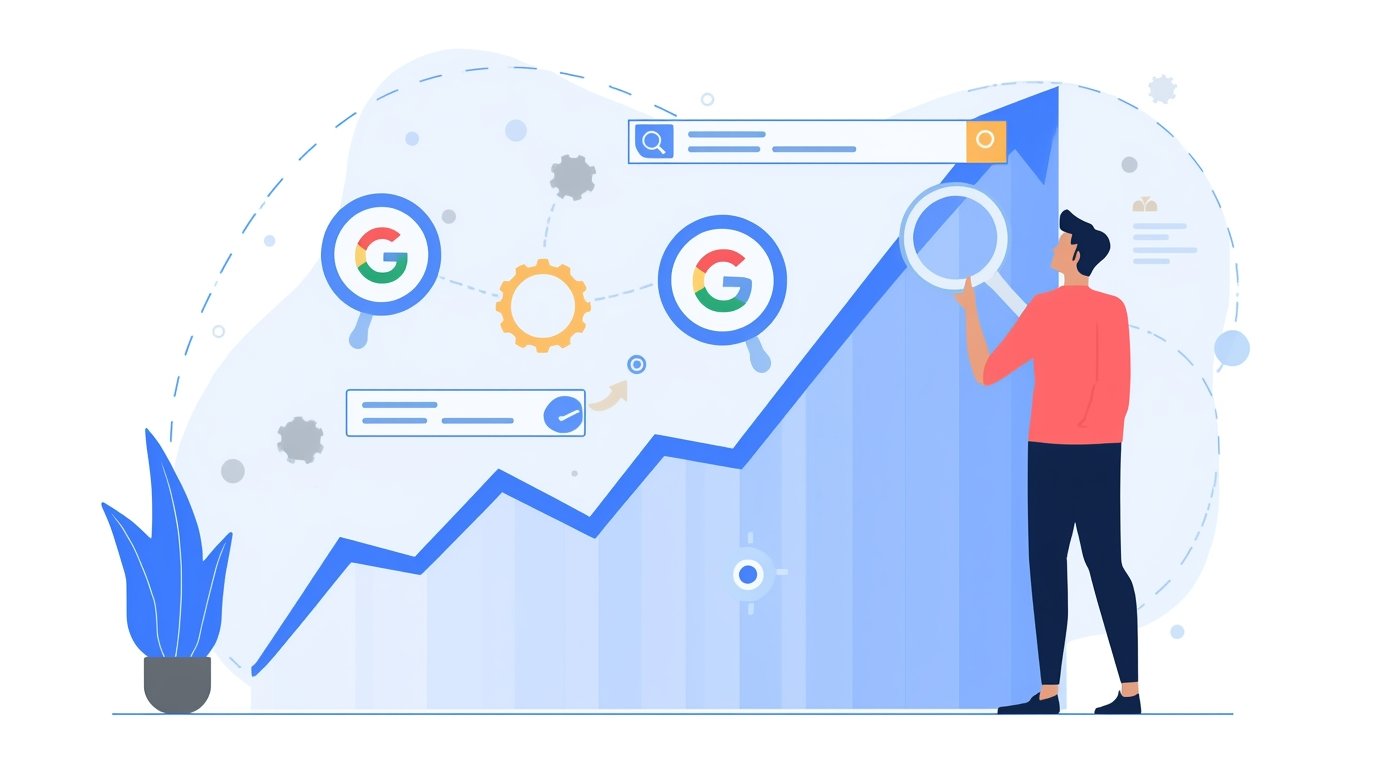
Sandeep Kaushik / January 8, 2026
Your 2026 Roadmap Digital Marketing Careers in India
So, are you curious about digital marketing and wondering, “What career options do I really have here?” Good news: You have come to the right place. Digital marketing is huge, and the best thing is that there is something for everyone. Whether you are into creativity, numbers, or strategy, you will find a role that fits your style.
You can choose the one that interests you the most after we explore the most common career paths in digital marketing:
Here is a list of the top eight digital marketing jobs for freshers in India in 2026. This will help you obtain a clear picture of how your career might progress in this field.
1. Digital Marketing Assistant

A digital marketing assistant is a vital supporting role within the marketing team. They work directly under the Digital Marketing Manager, helping with day-to-day tasks required to run successful online campaigns. Their primary goal is to drive sales and increase brand awareness through various digital channels.
This position is an excellent way to begin a career in the field because it provides you practical experience in various digital marketing domains.
Key responsibilities:
- Help plan, run, and monitor digital marketing campaigns, including social media posts and ad setups.
- Produce material for emails, blogs, and social media platforms, and locate additional appropriate content for distribution.
- Conduct market research and track campaign performance using tools such as Google Analytics.
- Coordinate with the team, create reports, and oversee the schedules.
2. SEO Manager

An SEO manager is a specialist in digital marketing who works to increase a business’s website visibility on search engines such as Google. In today’s digital world, when customers want to find a business, they almost always start with a search. An SEO manager’s job is to ensure that their company’s content shows up at the top of those search results, which is a key way to attract new customers without paying for ads. This is known as improving a site’s “organic traffic.”
Key responsibilities:
- They find the keywords and phrases people are using to search online.
- They make sure the website content is easy for search engines to find and understand, which helps the site rank higher.
- They work closely with content creators and web developers to improve the website’s search performance.
3. Social Media Manager

A social media manager helps brands engage with customers online by organizing and producing content for various social media platforms, such as Facebook, Instagram, Twitter, and LinkedIn. This role involves sharing posts, chatting with followers, and using trends to increase brand popularity and customer engagement. Social media managers are in high demand because they assist businesses in establishing connections and bringing in new clients in the current digital landscape.
Key responsibilities:
- They come up with fun ideas and make videos, pictures, or posts for people to enjoy.
- They talk to followers, answer questions, and make sure that everyone feels welcomed and connected.
- They look at numbers and patterns to see what people like and then share the insights with the team to improve.
- They plan what to post and when, making sure the brand message is clear and goals are met.
4. SEM (Search Engine Marketing) Manager

A search engine marketing manager is responsible for paid advertisements across all search engines and display networks. For this role, you need to be good with numbers and have great analytical skills.
You also require technical skills like a basic understanding of code and website design principles.
Key responsibilities:
- Create search engine campaigns to achieve maximum ROI.
- Track, evaluate, and report campaign and website performance.
- Determine monthly expenses and oversee the campaign budget.
- Make landing pages better for campaigns using paid search
5. Content Manager

Content creators craft messages to elevate brand visibility, lead teams, and implement various strategies for effective results. These skilled communicators develop strategies that resonate, driving effective outcomes across platforms. Candidates may need a bachelor’s degree along with an in-depth understanding of CMS and SEO practices.
6. Web Development Executive

Web developers (or a senior/lead web developer) are responsible for the look and functioning of the company’s website. Unlike junior developers, their role goes beyond just writing code. In order to match the web development strategy with business objectives, they also have a leadership component, mentoring other developers and collaborating closely with business executives. They often work on complex projects and are responsible for ensuring the technical quality and performance of the website.
Key responsibilities:
- They create and maintain websites using computer languages.
- They lead other developers and manage projects to meet business goals on time and on budget.
- They work with web designers and marketers to make sure the website is up-to-date and user-friendly.
7. Email Marketing Executive

An email marketing executive designs and manages campaigns, newsletters, promotions, and personalized messages. The role involves creating engaging content, segmenting audiences, tracking click rates, and making improvements based on performance. It’s a fantastic way for freshmen to learn about data-driven marketing and customer engagement.
Key responsibilities:
- An email marketing executive plans and sends emails to customers.
- They sort email subscribers into specific groups to send them relevant, customized messages.
- They analyze data to find out which emails are most effective.
- They set up automated email sequences that are sent to subscribers based on their actions.
8. Freelancing

Freelancing is a type of self-employment in which you work independently for various clients on a project-by-project basis, rather than being a full-time employee for one company. You are your own boss when you work as a freelancer. You are in charge of running your own company and are free to select your own clients, projects, and hours.
Key responsibilities:
- You are the main point of contact for clients, handling proposals, contracts, communication, and feedback.
- As you are your own boss, you are in charge of finding new clients, handling your finances, and sending bills.
- You manage every facet of the work, including strategy development, content creation, campaign management, and outcome analysis.
- To stay up-to-date with the newest developments in digital marketing, you must continuously update your knowledge and abilities.
Your journey starts now:
Congratulations on starting your journey to a fulfilling career in digital marketing! Whether you are a numbers person, a strategist, or a creative, this guide has demonstrated that there is a place for everyone in this fascinating industry.
The most successful digital marketers are those who are not afraid to learn and adapt as the industry evolves.
Your path ahead
An entry-level job is only the first step. You can advance to senior positions with more responsibility and strategic oversight by mastering the fundamental skills. Some of the roles can advance as follows
- Digital Marketing Assistant → Digital Marketing Manager: An assistant helps with everyday tasks. A manager leads the team, oversees all the campaigns, and manages bigger budgets.
- SEO Manager → Senior SEO Strategist: A manager’s job is to make sure that websites are easy to find. A strategist comes up with the company’s overall search strategy and helps junior staff learn.
- Content Manager/Marketer → Head of Content: A content manager creates and implements content strategies. The head of content directs all content for the company and ensures brand consistency.
- Web Development Executive → Senior Leadership: An executive builds and maintains websites using code. The next step is a senior leadership role, making broader technical decisions and guiding the web strategy.
Essential tips for freshers:
- Develop Your Portfolio Early: Even before you apply for jobs, start a side project, such as a blog, social media account, or small website. This indicates to potential employers your seriousness and practical application of your skills.

Networking is essential: Make connections with experts in the field of digital marketing by using sites such as LinkedIn. You can find a mentor, employment opportunities, and insightful information about the industry through a strong network. - Specialize to Stand Out: Although having a general understanding of digital marketing is beneficial, think about focusing on one area, such as paid marketing, content marketing, or SEO. You may be a more desirable candidate if you have a particular specialty.
- Embrace continuous learning: The digital marketing world is constantly changing. The most successful professionals are those who are always learning and adapting to new trends and technologies.
- Keep Your Resume to One Page: A resume should be concise, clear, and only one-page long. Make sure to list any relevant college courses, internships, or digital marketing expertise you have gained.
Must Read Articles from Techbooz
- AI + SEO: A Complete Guide to Smarter Search Optimization:AI + SEO: A Complete Guide to Smarter Search Optimization – Techbooz
- Finding Your Niche How to Turn Your Passion into a Business:Finding Your NIche – Techbooz



